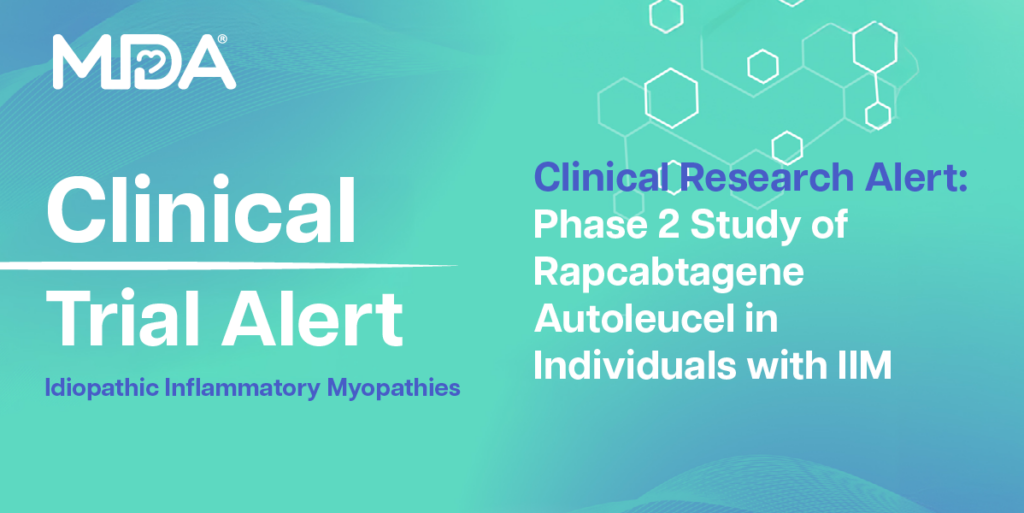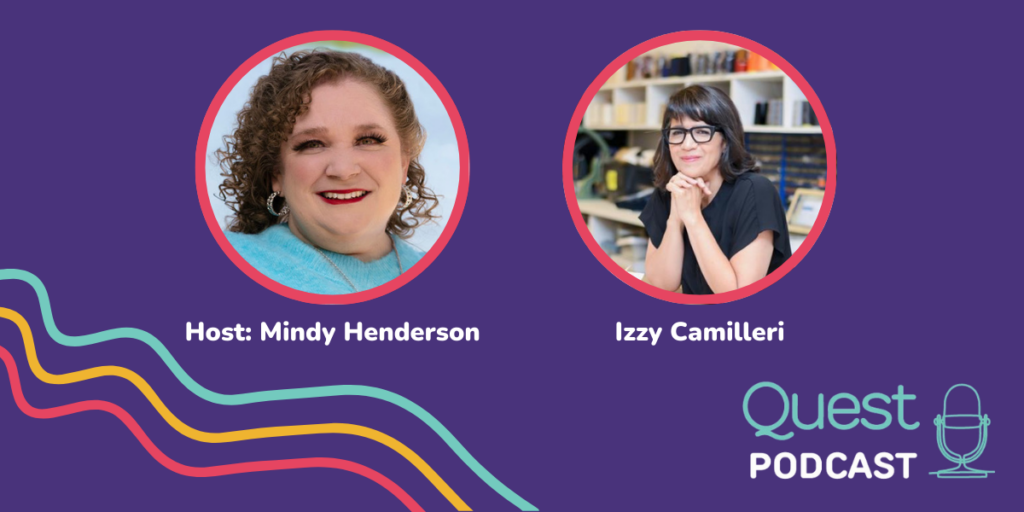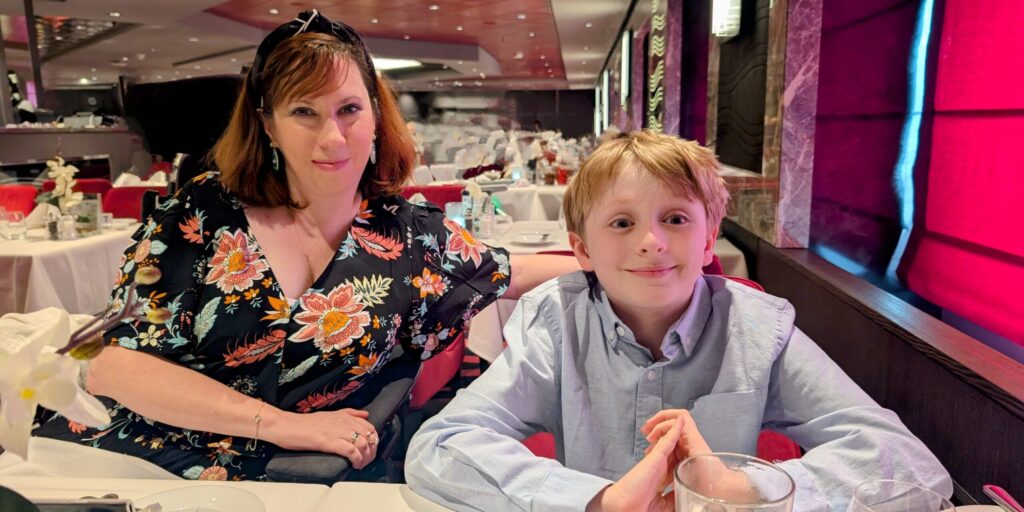
MDA Ambassador Guest Blog: The Unequivocal Power of Using Your Voice
By Victoria Nedza | Wednesday, September 17, 2025
5 Second Summary
MDA Ambassadors play an essential role in furthering MDA’s mission while representing and empowering the neuromuscular disease community. Quest Ambassador Guest Blog series provides a platform to share their personal stories, perspectives, and experience.
Living in Pennsylvania with her son, Victoria is an active volunteer with the Speak Foundation and LGMD News magazine as an Assistant Editor. She educates occupational and physical therapists, along with medical students, about her disease and inequities faced in healthcare today.
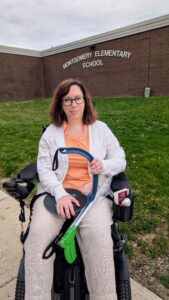
Victoria in front of Montgomery Elementary School
Everyone finds their voice at different times in their life and, for me, that was after receiving a diagnosis of Limb-Girdle muscular dystrophy (LGMD). I found my purpose and realized my words have power. I shed the fear of what others thought of me, and I stopped focusing on what I couldn’t do and focused on what I could do.
I often reflect, what does using your voice mean to you? It means standing proud, chin up, not being preoccupied with reactionary views. Many people will have opposing opinions and carrying all of those judgements can feel heavy at times, but it isn’t until you feel an unadulterated self-love that those sentiments start to feel weightless.
Using your voice means making sure you are being seen, heard, and acknowledged as worthy. It means looking into the mirror and accepting who you are as a person despite your faults, insecurities, and self-doubt. We as human beings are all multilayered and we as a disabled community are defined by more than what we lack. Our identities are comprised of many experiences interwoven to shape powerful, lived realities. Amplifying our voices uplifts others and helps to illuminate the path for those beyond to find inner strength to accomplish great feats.
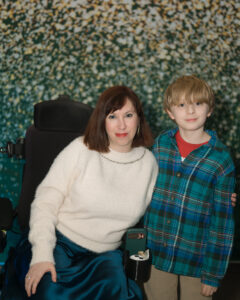
Victoria and her son
I sought to make sure that I stayed humble with my intentions in life, showing gratitude in every fiber of my being, and embodying this authentic sense of self. Equally, I wanted my words to transcend into action and the best way I knew how to do that was stand tall in front of a group of local elementary students – bright eyed, hungry with the quest to learn, and curious about why and how the world worked. The next generation of children can shape the way we see adversity. I specifically wanted to make sure my son’s friends had the toolbox to know what to say and how to act in order to be tolerant and accepting of others.
My words were meant to empower children to be all they could be, whether faced with a disability or not. In a small way, one school at a time, I wanted to make a big impact by promoting advocacy and awareness by hosting inclusion assemblies.
Each elementary school in my immediate area has “town hall meetings” throughout the year that reinforce the school’s motto and key pillars of success as it aligns with the district’s curriculum initiatives. For example, strive for excellence, foster teamwork and empathy, and lead by example are a few positive pronouncements they learn and recite each morning like the Pledge of Allegiance. These important tenants, especially how to be respectful to others, be responsible for your actions and feelings, and show kindness wherever you go, are at the core of my inclusion assemblies.
I teach the children that it’s okay to be different – we all look different, we come from different upbringings, and we’re all rich in our abilities to celebrate that diversity in our community. I do not, however, talk about my disease or chronic illness. Having a disability is not a label I choose to describe myself. I do not tell the children about my daily struggles. I instead show my ability to adapt, overcome challenges, and be resilient with my positive words, my temperament, and my body language.
My goals for the students are to know that I’m approachable and that it’s okay to ask me questions. Never do I want to meet a child and have their parents look the other way simply because they see me in a wheelchair as someone less than them. Children learn by asking questions and I’m here to listen to them – that’s the kind of response and reception I seek.
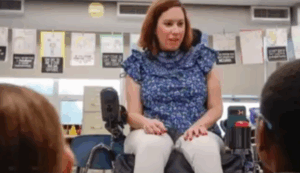
Victoria speaking to a room of students
I then reached out to a special education school in my area that serves kids (K-12) with complex challenges – learning differences, behavioral challenges, those who do not fit the mold of the mainstream classroom. I included a checklist of all the things these students needed to do to prepare themselves for success in life. We discussed what to do when faced with challenges, of which there will be many. The answer: Hold your head up high. You may be presented with obstacles but remember that you are capable of so much more. Believe in yourself and be proud of your accomplishments. A positive mindset that focuses on your potential rather than your limitations will make you a better person. Try new things even if you feel you might fail. Stepping outside of your comfort zone not only expands your horizons but also builds confidence. Determination, candor, and levity go a long way. Sometimes progress can be slow, but every step forward is a victory. Stay focused on your goals even when the journey feels impossible. And lastly, make a promise to yourself to be open to others’ perspectives, as listening is an opportunity for personal growth.
If I could offer one bit of advice to instill the power to use your voice, it would be to share your story out loud. Be proud of who you are. Be vibrant and unapologetic. Be you.
Next Steps and Useful Resources
- For more information about the signs and symptoms of Limb Girdle muscular dystrophy (LGMD) , as well an overview of diagnosis and treatment concerns, an in-depth review can be found here.
- To learn more about MDA’s Parenting Information, visit here.
- To learn more about MDA’s Mental Health Hub, visit here.
- MDA’s Resource Center provides support, guidance, and resources for patients and families. Contact the MDA Resource Center at 1-833-ASK-MDA1 or ResourceCenter@mdausa.org
- Stay up-to-date on Quest content! Subscribe to Quest Magazine and Newsletter.
Disclaimer: No content on this site should ever be used as a substitute for direct medical advice from your doctor or other qualified clinician.


